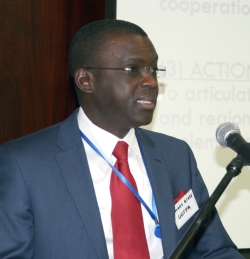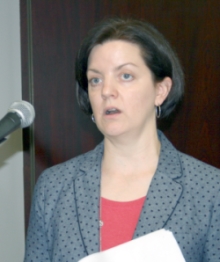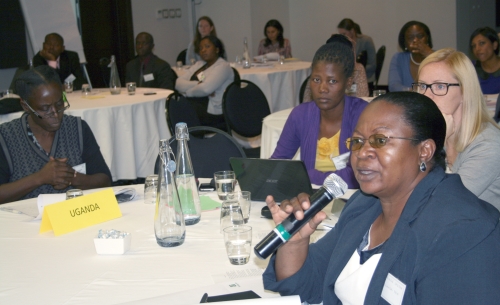JOHANNESBURG, South Africa — The strengthening of a Total Market Approach to male condoms in six African countries was the focus of a meeting held by the United Nations Population Fund (UNFPA) and Population Services International (PSI) in Johannesburg, South Africa this week.

The event saw the launch of the six case studies, which describe the market for male condoms in Uganda, Mali, Botswana, Swaziland, Lesotho and South Africa, looking at the roles of the public sector, social marketing sector and commercial sector in those markets.
The case studies illustrate the countries’ need for condoms, levels of use, socioeconomic equity among users, and the market presence of condoms for reproductive health and HIV prevention (‘dual protection’), said Mady Biaye, Population & Development Technical Adviser for UNFPA ESARO. He was speaking on behalf of Regional Deputy Director Lina Mousa.
“The country case studies were completed in July 2013 and they are launched today with the intent of disseminating results, improving cooperation among countries and acting on the recommendations highlighted in each one,” he said.

All six countries have large condom social marketing programmes, are at the epicentre of the HIVepidemic (except for Mali), and have high maternal deaths and injuries relative to their economic development, possibly partially attributable to HIV. The study design included a literature review, the calculation of seven key TMA metrics from national-level data, as well as interviews with partners, including all six PSI country platforms and PSI's regional CSM programme based in Johannesburg. The case studies underwent a review by PSI country platforms, regional offices and three departments at PSI's headquarters in Washington, DC.
The aim of the meeting was to increase knowledge and awareness of the Total Market Approach (TMA) by disseminating the case study findings and recommendations. Partners from Botswana, Lesotho, South Africa, Swaziland and Uganda were represented at the meeting, where they discussed the priority agendas for national-level cooperation to strengthen TMA in light of the country-level findings.

The case studies were the brainchild of UNFPA Executive Director Dr. Babatunde Osotimehin, who approached PSI CEO Karl Hofmann about the idea at a meeting in 2011.


